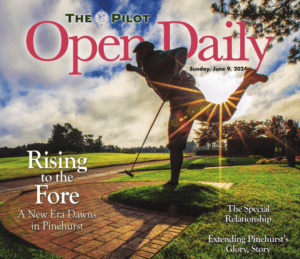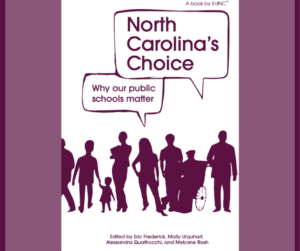Check out the full NC Local newsletter from March 6 for more news from the NC Local News Workshop, kudos for journalists across North Carolina, industry updates, job listings and more. Sign up to get NC Local in your inbox every Wednesday.
By Eric Frederick, NC Local Newsletter Editor
One of the best pieces of journalism in our state in the past week was Mandy Locke’s examination, with the North Carolina News Collaborative, of a provision in last year’s state budget that had some serious unintended consequences.

After the murder of George Floyd by a Minneapolis police officer in 2020, calls rose for more transparency about officers’ use of deadly force. But as Locke reports, a criminal justice reform bill passed last year did the opposite — actually increasing the secrecy around such incidents in North Carolina.
Locke, a friend and former News & Observer colleague, is an independent investigative reporter who also teaches journalism at Wake Forest University. To do this project, she applied for a grant from The Pulitzer Center and invited the collaborative, a coalition formed in 2019 including 23 news organizations, to be her publishing partner. It’s her second project with the group.
One thing that intrigued her as her reporting progressed, she said, was how vulnerable we can be to well-crafted “simple narratives” from public officials — until we peel back the layers.
“The initial rallying cry was, we have got to know more; we have got to account for what’s happening in our state around use of force,” Mandy told me in a phone chat this week. “And the end result was extraordinarily different — a level of privacy around this information that takes us back two notches.”
Danielle Battaglia, McClatchy’s congressional correspondent for North Carolina, contributed to the main story in the four-piece package, and McClatchy Southeast investigations/high impact editor Cathy Clabby edited the project. Along the way, “there were lots of smart people that helped steer this,” Locke said.
“For the sake of democracy, we’ve got to get creative about playing together well in the sandbox.”
Locke and I talked a little about collaborative journalism. Her take: Collaborations are hard, but rewarding. And necessary.
“One of the things that I believe has happened, as journalism has evolved, is that we have become really narrow and focused on our definition of audience,” she said. “Over the years you saw The News & Observer rethink its notion as the state paper into a Triangle paper, and then you have all of these nonprofits that have niche topics. So we’ve got a lot of really tight definitions for territory. And I think the opportunity with a collaborative is that you’re able to think, OK, my audience is the entire citizenship of North Carolina. … Collaboratives, at their core, are the best part of us individually as journalists, because we’re really thinking broadly about the reader.
“But one of the challenges of collaboratives is that somebody has to take the lead … You have to do a lot of cheerleading. You have to do a lot of consensus building. And you’re making a case for people extending themselves beyond their already really hectic jobs. … It’s more art than science. … But when you can sort of beg and borrow resources from a lot of different places, you can make a quilt, and sometimes the quilts turn out really beautifully.”
And to good effect.
“We have populations of vulnerable people whose rights and demands are often neglected,” she said. “And it’s really important that we document that, and show how our public officials are working toward — but sometimes falling short of — reform. For all the great journalism being done in the state, there is so much more to do. For the sake of democracy, we’ve got to get creative about playing together well in the sandbox.”
➵ Find out more about applying for a Pulitzer Center grant.




